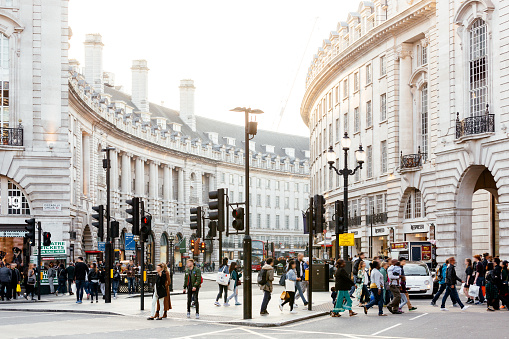
THE UK ranks among the least racist nations overall, according to a recent study by the Policy Institute at King’s College London that looked into the degrees of racism in several countries.
The study, which is a part of the World Values Survey (WVS)*, analysed the international norms for trust and acceptance of persons from different origins in 24 countries.
Only 2 per cent of Britons, according to the research, find it unsettling to think about having a neighbour who is of a different race.
According to the study’s authors, one of the conventional methods for measuring racism is to ask participants if they would be content living next to someone of a different race.
The survey also reveals that when it comes to tolerance of LGBT people and immigration, Britons score among the top.
The proportion of Britons who feel uneasy living next door to someone from a different ethnic origin has declined from 10 per cent in 1981 to 2 per cent now.
Now, only Sweden and Brazil have lower scores of just 1 per cent, which are essentially tied within the margin of error.
Iran was at the top of the list that took into account the proportion of citizens who stated they would not want to live next door to someone of a different race.
Iran also topped the list of countries that showed prejudice towards immigrants and foreign workers. The rank list is below.
The results, however, do not line up with those of other studies published this year, which demonstrated that the UK is “far from racially just.”
The UK (4 per cent) ranks alongside Sweden (3 per cent) and Norway (2 per cent) as the most relaxed about the idea of having neighbours who are gay.
Professor Bobby Duffy, director of the Policy Institute at King’s College London, said: “The UK public are highly trusting of the people in their neighbourhood and very comfortable being neighbours with a wide range of groups, compared with many other nations and our own past views.
“It seems absurd that as recently as 1990 nearly a third of people in the UK said they’d be uncomfortable with gay neighbours, but this is now down to just 4 per cent, and reflects a wider rapid change of attitudes, shown in increased acceptance of people from different races and immigrants. These shifts have been seen in other countries too, but the UK has often shifted more than many others, putting us now among the most open countries in the study.
“This does not apply to neighbours engaged in illegal or anti-social behaviour, however, with drug users in particular the least welcome, and the UK more hardline on this than many other countries.
“Our high levels of neighbourhood trust and tolerance are somewhat at odds with relatively widespread experience of local illegal or anti-social behaviour – for example, 28 per cent of us say we’ve seen drug dealing in our neighbourhood, which is on a par with the US and compares with 7 per cent in Germany.”
The 2022 UK data was compiled from 3,056 participants who were randomly selected and questioned by Ipsos using a combination of in-person and online survey techniques. For the purpose of being nationally representative, data has been weighted by area, education level, and age and gender interlocked.
*The World Values Survey (WVS) is a global research project that explores people’s values and beliefs, how they change over time, and what social and political impact they have.